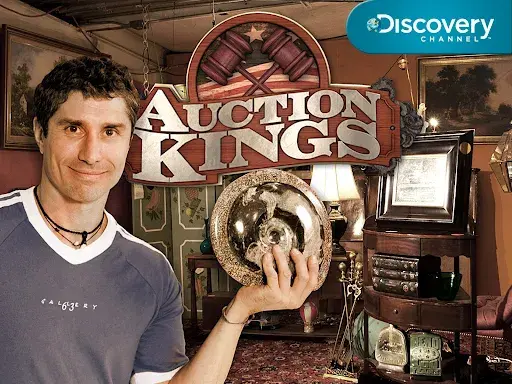German Museums, the Met, and Others Move to Return Benin Bronzes
In 1897, British soldiers looted thousands of cultural, religious, and artistic artifacts from the Kingdom of Benin. These works disappeared into the private market and found their way into museums across Europe and North America. Today, calls for the repatriation of the Benin Bronzes have increased in volume. Some institutions are finally taking action.
After exploring the link between Benin Bronzes and the auction world in April, Auction Daily checks on the progress toward repatriation.

Germany Commits to Repatriation
As repatriation drew more media attention and public support in early 2021, museums and cultural institutions faced increasing pressure to return their looted Benin Bronzes. Germany was among the first European countries to take a tangible step forward. Approximately 1,130 items from Benin are currently held by institutions across Germany. Repatriation talks between the German government, museum officials, and Nigerian partners began in March. Cultural ministers and officials from 25 institutions met to develop a coordinated plan for repatriation.
In late June, the Prussian Cultural Heritage Foundation’s board agreed to the repatriation plans. The board authorized director Hermann Parzinger to negotiate the return “regardless of the circumstances in which they were acquired” by Berlin museums. This move will affect Berlin’s Ethnological Museum, which contains around 530 objects from Benin. Only the British Museum holds more looted items in a single collection. The Foundation stated that the repatriation process will begin in early 2022.
“We see Germany as a leader in the efforts to take practical steps to repatriate our stolen artefacts, and we hope Germany will sustain that lead,” Alhaji Lai Mohammed, Nigeria’s Minister of Information and Culture, stated in a planning meeting with German officials. Mohammed also emphasized the need for the complete and unconditional return of the Benin Bronzes, including those housed outside of Berlin.

The Met Returns Two Bronzes
Berlin museums will join New York’s Metropolitan Museum of Art in repatriating items looted from the Kingdom of Benin. In early June, the Met agreed to repatriate two brass plaques created for the Court of Benin prior to the 1897 British raid. The British Museum formerly housed the plaques before they entered the private market. A collector acquired the works and donated them to the Met in 1991.
After formally deaccessioning the Benin plaques, the Met will hand-deliver them to Abba Isa Tijani, the Director General of Nigeria’s National Commission for Museums and Monuments. The Met will also facilitate the return of a 14th-century brass head from Nigeria’s Wunmonije compound. This third bronze piece was offered to the museum for sale but did not enter its collection. The Met currently holds approximately 160 items from the Kingdom of Benin. While repatriating two plaques is an important step forward, critics have quickly pointed out that the museum has no plans to repatriate or take down its other stolen bronzes.

Other Repatriation Efforts
Several other organizations and institutions have moved to repatriate looted artifacts from Benin. After Scotland’s University of Aberdeen pledged to return a Benin bronze piece to Nigeria in March, the country took further steps. The National Museum of Scotland in Edinburgh recently announced a new policy that would open the doors to repatriation. “In exceptional circumstances we will consider a request made by claimants located outside the UK to transfer a specific object or group of objects where the request meets certain criteria,” reads the new policy, according to The Sunday Post.
While the National Museum of Scotland has not released any public plans for repatriation, the policy signals a major shift. The Museum has been staunchly opposed to repatriation since 1866. The new policy points to an increasing support for repatriation while placing additional pressure on the British Museum to take action.
The British Museum holds around 900 items from Benin, most of which the British stole during the 1897 raid. Despite the groundswell of support for repatriation, the Museum has taken few steps to return its collection of Benin Bronzes. Museum officials are somewhat limited by Britain’s Parliament, which requires a change in law to repatriate any works. Bureaucratic red tape and apparent indifference toward requests have halted the return of the British Museum’s bronzes.

Progress on the Edo Museum of West African Art (EMOWAA)
“With the momentum that seems to be behind some of the discussions, we feel more and more confident that the challenge is no longer going to be persuading people to give objects back,” said financier Philip Ihenacho in an interview with The New York Times. “The challenge is going to be how to build an institution that is worthy of receiving the objects.”
That challenge is becoming easier. As international discussions of repatriation continue, the Edo State Government in Nigeria has redoubled its efforts to build the Edo Museum of West African Art. This facility will hold the delicate Benin Bronzes in a secure, climate-controlled location. Godwin Obaseki, the Edo State Governor, recently revealed the official design of the museum and announced plans to start construction before the end of the year. The EMOWAA will include a pavilion to hold repatriated items, as well as buildings for the National Museum, Royal Collections, restored parts of the old Benin City, and galleries for contemporary art. The new facility may be able to hold artifacts by late 2022.












